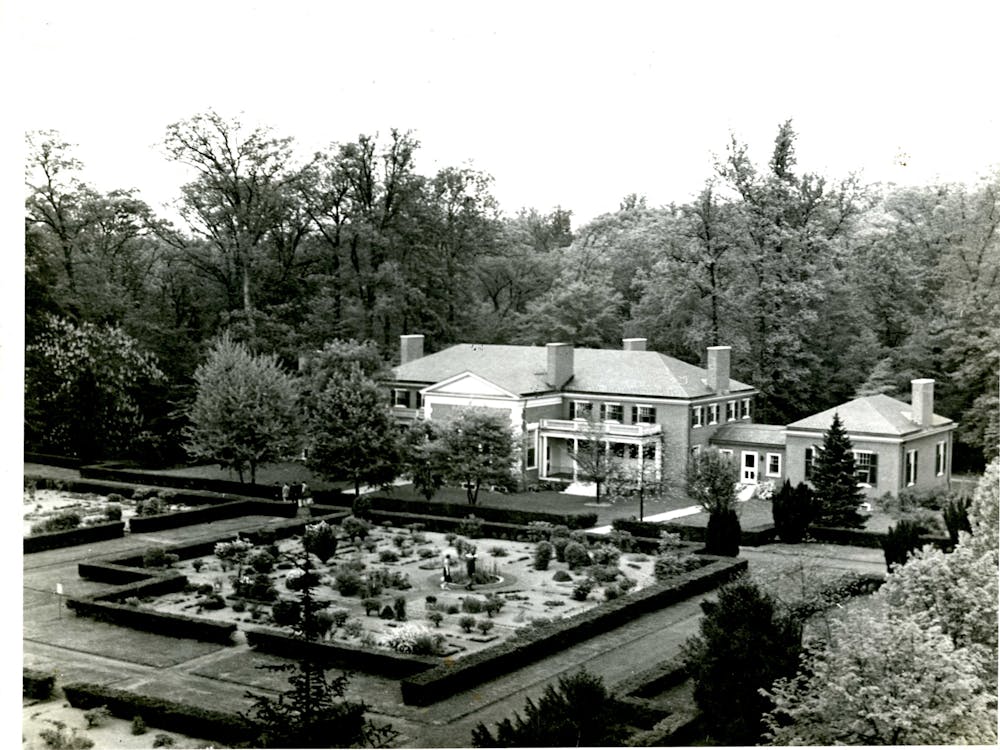On Wednesday night, the Students for Environmental Action (SEA) and the Hopkins College Democrats chapter co-hosted Hopkins alumnus and former Maryland Secretary of the Environment Robert Summers, who discussed the environmental problems that Maryland tackled during his tenure and challenges it will face in the future. Having just finished his term as secretary, Summers provided the audience with a characterization of the environmental problems he addressed while in office and the problems that Maryland faces in the years to come.
Summers then transitioned to discussing the current challenges that Maryland faces. Citing the prevalence of dredge materials present in the Chesapeake Bay shipping channels, Summers explained how the finer elements of the dredge materials tended to be the agricultural runoff from farms near the bay. He discussed how environmental problems caused by the excess phosphorus in the runoff could have massive economic impacts on local areas.
“Thirty-some years later, nonpoint source pollution is still the biggest issue facing the [Chesapeake Bay],” Summers said. “[Nonpoint source pollution is] affected by rainfall and [can be directly correlated to] what people do to the land.”
Summers discussed how the nonpoint source pollution problem is not isolated to the Chesapeake region; he specifically referenced the recent water crises in Toledo, Ohio that forced the town to shut down its tap water supply. While Summers said that no perfect solution existed to solve the nonpoint source pollution, he discussed the implications and backlash the O’Malley administration faced after implementing a stormwater remediation fee. Summers mentioned how the fee was skewed as a “rain tax” by the new Hogan administration and how efforts to repeal the tax are already underway in the state legislature.
Summers also discussed fracking and mineral rights in Garrett County of western Maryland.
“Since [fracking] technology has came to the east in 2007-2008, there have been a lot of problems associated with [the practice],” Summers said. “Under Governor O’Malley, we put in place an advisory board and came up with very stringent regulations to control fracking in Maryland.”
Summers discussed how O’Malley’s “Surface Owners Protection” executive order sought to protect landowners who owned land but not the mineral rights under the land. The order was designed to provide financial compensation to surface owners and to try to minimize the surface damage caused by fracking. In general, however, Summers noted that the election of Republican Larry Hogan to Maryland’s governorship may also alter the rules surrounding fracking.
Summers then segwayed from his discussion of the recent election results into the Regional Greenhouse Gas Initiative (RGGI or ReGGIe). According to Summers, the RGGI cap and trade carbon policies indicate that cap and trade policies are effective on a large scale. Summers discussed how that was no significant change in utilities pricing after the implementation of the initiative and how money from the initiative went into funding clean energy in the future. He then alluded to the need to balance the idealistic elements of environmentalism with the pragmatism of social policy and the public sector’s need for allies.
“You learn very early on in this job that you can’t get anything done without a budget and without the support of the legislature,” Summers said. “You’ve got to be pragmatic; I know a lot of times environmental groups would get very frustrated with me because I wasn’t taking very aggressive action they wanted me to take.”
Summers highlighted the need for champions of environmentalism in the public sector, especially as the current generation of policymakers begin to retire.
“We need public servants who have the vision and willingness to work with both parties to get something done,” he said. “It doesn’t matter what level you are in the department; as long as you have the drive, you can achieve.”
Students at the presentation greatly appreciated Summers’s methodical and realistic approach to the current issues that face Maryland.
“I thought it was interesting to hear the scope of the environmental issues [Summers has] had to deal with [during his tenure],” junior President of the SEA Nikita Singh said. “I guess the question about balancing the ideal solution with the political constraints was the most interesting thing to hear... it’s hard to hear that’s what takes away from doing environmental work, but it’s an important message to remember.”
“[Summers was] very thorough about the current state of problems that Maryland faces,” freshman Darius Mostaghimi said. “[He] very methodically went through what he did during his tenure [and presented] good information about his future.”
Summers first became interested in the environment when he was inspired by the films of French naval conservationist Jacques Cousteau. Summers knew growing up that he wanted to one day work on saving the world’s oceans. With this dream in mind, he came to Hopkins originally intent upon on studying marine biology. After his first year, Summers branched off and eventually ended up receiving both his BA and PhD in environmental engineering from Hopkins.
Summers was the first speaker in a series of speakers hosted by the JHU College Democrats. On April 1, the College Democrats will host Catalina Rodriguez-Lima, the director of Baltimore City’s Office of Immigrant Affairs, who will speak about immigrant issues from the Baltimore perspective. On April 22, the JHU College Democrats will host the shadow senator Michael Browne from the District of Columbia, who will speak about D.C. voting rights and D.C. issues. The series of speakers seeks to focus on the theme of American issues from a local perspective.






















Please note All comments are eligible for publication in The News-Letter.